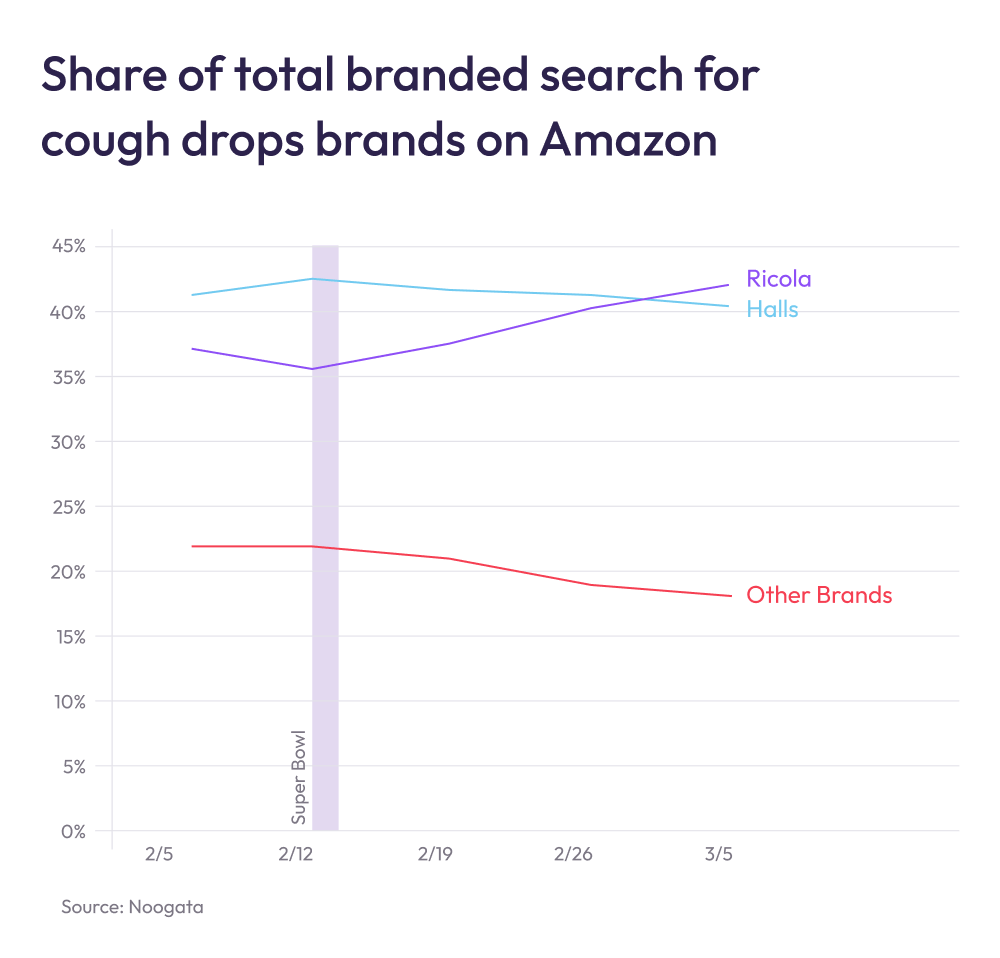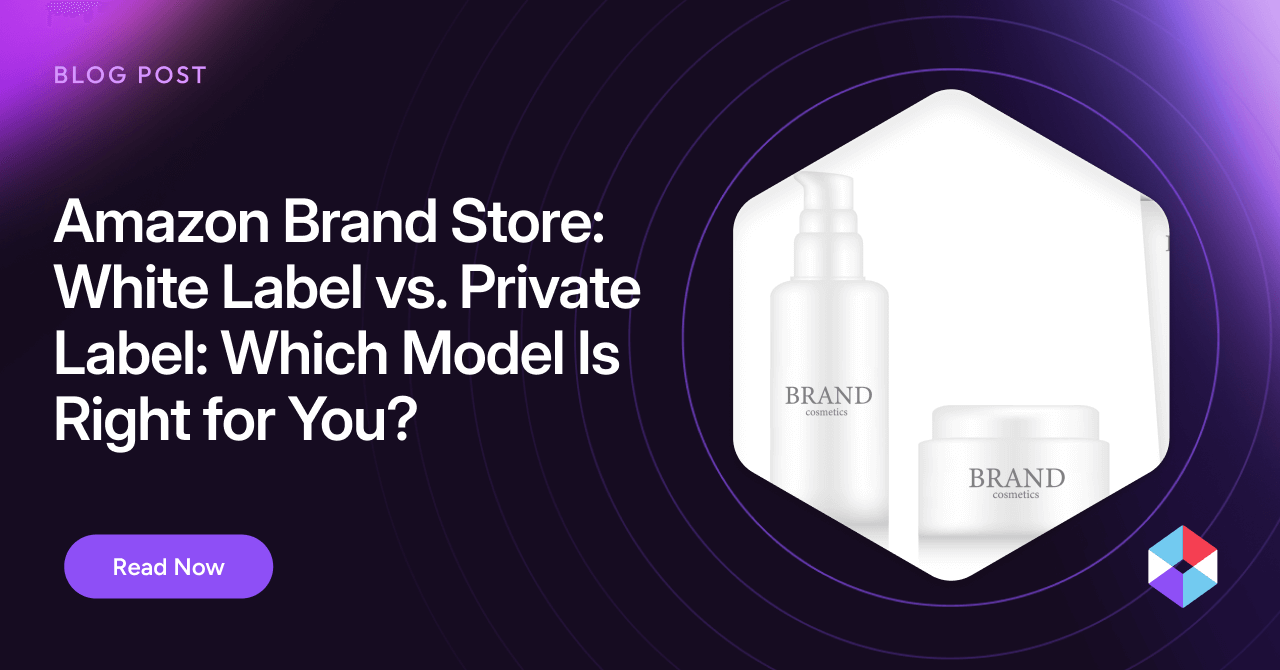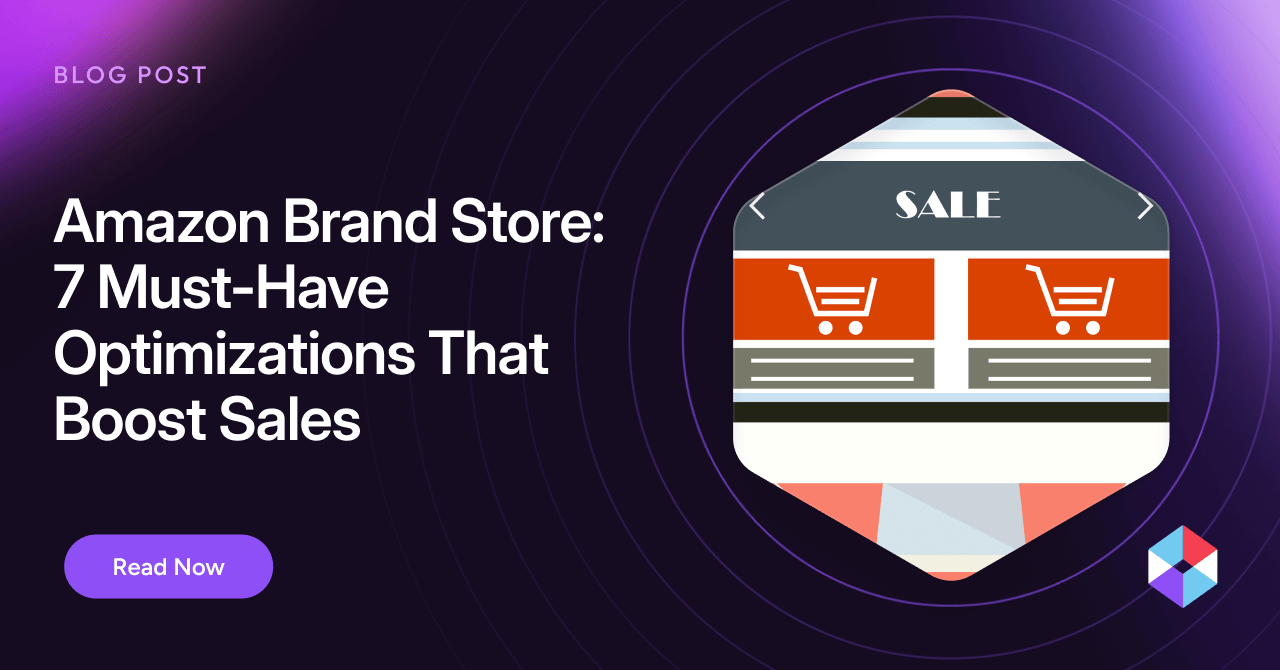No Commercial No Problem: Brands are Finding Consumers on the Second Screen and it Works
In 2022, some advertisers, including cough drop company Ricola, sought more direct consumer engagement during the Super Bowl by moving away from traditional broadcast ads to social strategies that target the ‘second screen’ – an additional device capturing consumer attention during an actual broadcast. An AdColony survey shows that 59% of viewers are keeping up with the game on multiple devices including TV, mobile phone and laptop – 16% increase on last year. And more users than ever say they are texting, browsing social media and playing mobile games. It’s an opportunity for advertisers like Ricola and they took it.
However, assessing success in changing purchase intent is notoriously difficult. By using Noogata’s eCommerceLibrary we can tell that Ricola’s strategy has worked.
A Shift to Social
In 2021, Ricola spent big for a Super Bowl commercial spot, but also experimented with short-form videos for social media and influencer marketing, brand monitoring followed by direct comment messaging. This social strategy grew into an always-on effort, and in 2022 was the lynchpin of their SuperBowl strategy. Using a range of social media, but particularly TikTok, Ricola created 15 second animations that promoted the use of Ricola outside of the cold and flu season by tying the product to demand moments like cheering during a big game or screaming on a roller coaster. This has the added benefit of a message and channel they can continue to deliver on year-round.
Using Noogata to Monitor Purchase Intent
Ricola used a proxy to measure purchase intent against other brands by monitoring the #tiredvoice hashtag as well as social media mentions of the brand. Promising results show their main competitor Halls reduced from dominating 75% of references to 50% from early 2021 to 2022, but these indicators are far removed from the actual intent to purchase.
By using Noogata’s eCommerce library of AI applications (called “blocks”) we can more accurately monitor and measure whether Ricola is seeing an increase in customers specifically seeking their product when buying cough drops, which also offers insight into whether Ricola is taking market share.
We used three blocks in sequence, allowing us to identify similar products to Ricola’s (Competitive Landscape block), then find all the relevant search terms (Search Term Discovery Block) and group together the ones that lead consumers to the virtual cough drop shelf (Topic Analysis Block). By comparing weekly results for search terms and products, with a flag for branded and unbranded search terms (such as a search for “Ricola cough drop” vs just “cough drop”) we were able to generate a metric for Ricola vs Halls and other brands for their share of branded search in the cough drop space.
Ricola scores!
In 2021, with the support of a SuperBowl broadcast spot, Ricola had a modest gain of 2.2% in the share of branded search three weeks later but Ricola still lagged Halls by over 10%, which also held over 50% of all branded search. The new strategy turned this around in 2022 with a 6.24% increase in the share of branded searches in the three weeks after the event, representing the biggest three-week jump since March 2020. Perhaps more importantly, and a result that truly validates Ricola’s Super Bowl social media strategy, for the first time Ricola has seen more branded searches than Halls in a given week, demonstrating its success over competitors following the launch of this campaign.
While social media engagement can be monitored and measured and, over time, sales results can demonstrate success of overall campaigns and strategies, the use of AI to analyze the huge volumes of data not just on Ricola, but its competitors, is invaluable. And by tapping into search term and topic analysis, Ricola can understand better if its marketing and advertising strategies are impacting its brand penetration and perception.



